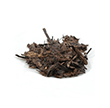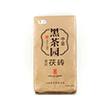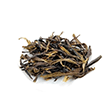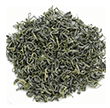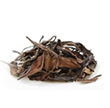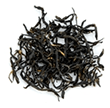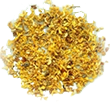Chinese Tea, Health & Caffeine
There are many health benefits attributed to drinking Chinese tea, ranging from feelings of well-being to near magical cures. For the average person, much of this interest is focused on ancient claims related to weight loss and more modern claims of cancer-prevention due to tea’s anti-oxidant properties. Each person must make their own assessment of the facts. While there are centuries of tradition and empirical evidence, there is little modern scientific consensus that supports the health benefits of tea and the effect of anti-oxidants in the body to prevent anything has recently been drawn sharply into focus.
We believe that any food product can have positive and/or negative health effects and in varying degrees for different individuals. We do not recommend teas on the basis of health benefits and at this point, do not think it is prudent to recommend tea-drinking for anything other than to enjoy the wonderful flavour and the joyous experience of enjoying tea alone or with friends.
Chinese Tea And Caffeine
It is common to hear people say “Tea has much more caffeine than coffee”. It is just as common to hear the opposite point of view. In fact, with all the varieties of teas and coffees available, the different methods of manufacturing and preparing them for consumption and the different amounts consumed, both statements are in need of significant qualification.
So how much caffeine does tea and coffee have? Scientific studies and consumer group reports can both be less than detailed about what teas were used in their research. We will refer to a well detailed study published by the British Government (Survey of Caffeine Levels in Hot Beverages, Food Standards Agency, UK, August 2004):
- All Teas: mean 40 mg per serving
- Instant Coffee: mean 54 mg per serving
- Ground Coffee: mean 105 mg per serving
It has been generally believed that Chinese green tea has less caffeine than black tea. There is much study and discussion on this subject which suggests that his may not be the case. In fact, green tea may have more caffeine than black tea. The confusion has been the result of more broad and unqualified statements that compare apples to oranges and not apples to apples, so to speak.
Most black tea exported to the West is from India and the Camellia assamica plant from which Indian tea is made produces higher levels of caffeine than from the Camellia sinensis variety that is used for Chinese teas. Furthermore, the oxidization process used in making Chinese black teas appears to reduce caffeine content rather than increase it as previously thought. So, when you compare Chinese green tea to Chinese black tea, caffeine content in Chinese green teas seems to be higher than in Chinese black teas. Both are less than Indian black teas and all teas are significantly less than coffee.
But there is a way to reduce the caffeine level of any tea if you are sensitive to it. Any tea is best enjoyed using the traditional Chinese method of tea-making known as Gong Fu Cha (Tea With Great Skill). This highly controlled method of tea-making is characterized by using small teapots and multiple brews with very short steeping times of just a few seconds. This intensifies the flavour of tea and reduces caffeine levels. Using this method, the first brew is for washing the leaves and is poured away, so it is not consumed. This also has the effect of washing away much of the caffeine which is highly soluble in water.
For reference purposes only, we list the benefits of Chinese Teas as commonly recognized in Traditional Chinese Medicine:
Black Tea (known as Red Tea in China)
- Reduce fat, protein and low-density “bad” cholesterol
- Rich in fluoride, promotes dental health
- Reduce fatigue, stimulating the central nervous system
- Promotes strong bones
- Enhance blood vessel elasticity and strength
Green Tea
- Tea catechins have anti-bacterial and anti-virus properties
- Regulates cholesterol and high blood pressure
- Bacterial killing properties in the mouth and intestines
- Tea catechins and polysaccharides can lower blood sugar
- Improves blood flow
Oolong Tea
- Polyphenols prevent tooth decay
- High source of Vitamin C, good for the skin
- Can reduce skin irritations
- Can improve the performance of enzymes that break down fat and increases fat metabolism
- Can lower cholesterol
- Muscle relaxant in the bronchial tract
- Can regulate body temperature
White Tea
- Can reduce inflammation caused by rheumatoid arthritis
- Can control insulin secretion
- High source of Vitamin A, can prevent dry eyes and night blindness
- Can reduce radiation levels and repair DNA damage
Pu-erh Tea
- Aids digestion and fat break down
- Has been used in the treatment of arteriosclerosis, colds, bleeding and hepatitis
- High level of Vitamin C which is soluble in water and can be rapidly assimilated by the body
To learn about the traditional method of tea-making, see our guide: Gong Fu Cha - The Complete Guide to Making Chinese Tea by Daniel Lui.
 Top of Page
Top of Page

Ask The Tea Wizard
Don't know which tea is right for you? Answer a few questions and the Online Wizard will show you all the Chinese teas that suit your taste.


